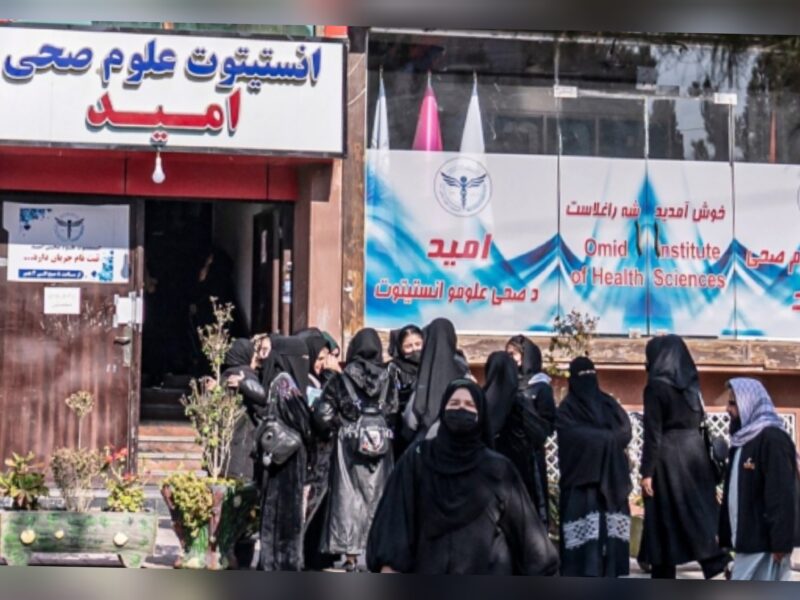Senior officials at several health training institutions confirmed the directive, citing an edict from the Taliban’s supreme leader.
Kabul, Afghanistan — The Taliban has reportedly banned women from pursuing nursing and midwifery education in Afghanistan, marking another setback for women’s rights under the regime.
Senior officials at several health training institutions confirmed the directive, citing an edict from the Taliban’s supreme leader. The ban comes as Afghanistan continues to face international criticism over what the United Nations has labeled “gender apartheid.”
On Monday, health officials met with directors of educational institutes in Kabul to inform them of the ruling. An official from the public health ministry, speaking anonymously due to the sensitive nature of the issue, said no official documentation was provided.
“The directors were simply told that women and girls can no longer study in their institutes,” the official explained. “No justification was given, and they were asked to comply with the order.”
One institute manager who attended the meeting described the situation as confusing and demoralizing. “Dozens of managers were there, and we were all told to implement the decision,” the manager said on condition of anonymity.
Institutes were reportedly given 10 days to conduct final exams before the ban takes full effect. Some directors sought clarification from the health ministry, while others continued operations as usual due to the lack of formal communication.
A staff member at a separate health center said their management was also summoned for a follow-up meeting to discuss the new restrictions.
Before the ban, health training institutes were one of the few avenues of higher education available to Afghan women, following earlier Taliban restrictions on education beyond secondary school.
Women currently account for the majority of the 35,000 students enrolled in approximately 160 public and private health institutes across Afghanistan. These institutions offer diplomas in various medical fields, including midwifery, pharmacy, anesthesia, and dentistry.
“What are we supposed to do with just 10 percent of our students?” one institute manager lamented.
Aysha, a midwifery teacher at a private institute in Kabul, said she received a message from her employer telling her not to report to work until further notice. “This was the only hope for girls and women banned from universities,” she said. “Psychologically, we are shaken.”
The health ministry warned that the ban could exacerbate staff shortages in Afghanistan’s already struggling healthcare system. “We are already short of professional medical and paramedical staff,” a ministry source said. “This decision will only worsen the crisis.”
The United Kingdom’s charge d’affaires expressed concern over the ban, calling it “another affront to women’s right to education.” He warned that the decision would further restrict access to healthcare for Afghan women and children.










Join our Channel...